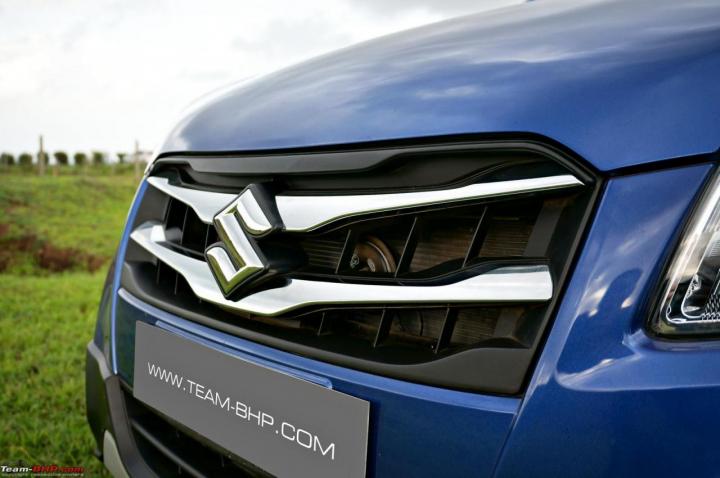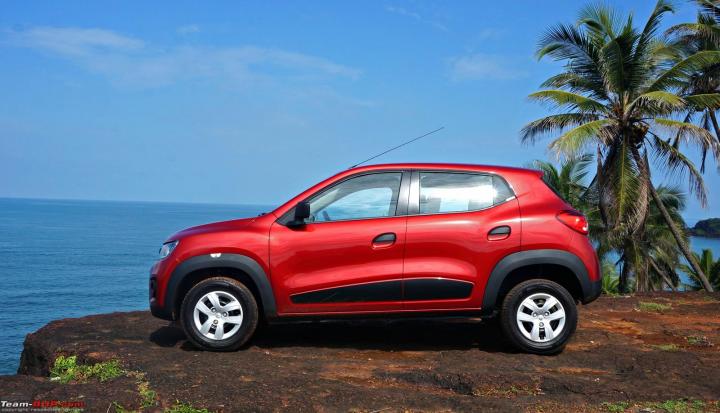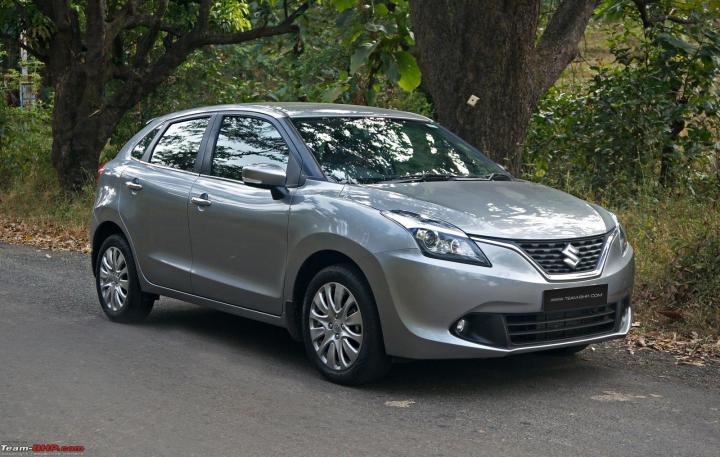News
Daimler India expands solar power capacity to 3.3 Megawatts
Daimler India Commercial Vehicles (DICV) has completed a major expansion of its solar power generation capacity, at the company's manufacturing plant located in Oragadam, near Chennai. DICV has made a significant addition to the photovoltaic cell installations at its manufacturing plant, which has increased its power generation capacity from 0.8 MW to 3.3 MW.
The solar power field has been located intelligently within the confines of the manufacturing plant's test track. This has resulted in optimum utilization of the land between the circuit where Daimler's commercial vehicles are tested. The aforementioned expansion of solar plant includes 10,000 new photovoltaic panels. These newly installed polycrystalline solar panels have increased power generation of the plant by more than 300%. Daimler India claims that it is now generating more than one-fourth of the total daytime average electric power needed at the Chennai plant, using environment-friendly renewable energy.
In addition to the said solar power plant, DICV, which is a wholly owned subsidiary of Daimler AG, has also taken several other steps in order to make manufacturing more environment-friendly and sustainable. The company has planted 16,000 trees in the 400 acres wide Chennai campus, since it started operations here in the year 2012. An advanced rainwater harvesting system too has been put in place that holds water in a large pond of 60,000 kilolitre capacity. Two sewage treatment plants have been commissioned to return clean water that can be used for irrigation.
Through these efforts, Daimler India plans to make its Commercial Vehicle plant in Chennai one of India's greenest industrial complexes.
News
Maruti Suzuki prepones plant maintenance schedule to June 6
Maruti Suzuki India Ltd has preponed its plant maintenance schedule by around three weeks. Earlier scheduled from June 27 to July 2, 2016 both plants of the automaker (in Gurgaon and Manesar) will now remain closed from June 6 to June 11, 2016 for the company’s bi-annual maintenance drives.
The company has officially commented that this advancement of maintenance schedule will help Maruti Suzuki to utilize the time window for arranging supply of components, especially AC compressors. The company's manufacturing facilities are currently facing shortage of supply of AC compressor units, after a massive fire broke out at M/s Subros Ltd., which is Maruti's chief vendor of compressors. This fire has already resulted in a production loss of four shifts at both Maruti Suzuki factories.
The company expects to get better production volumes once the plant maintenance and component supply issues are taken care of.
News
Maruti Suzuki to resume production from second-half of June 1
Two days ago, Maruti Suzuki had to shut down manufacturing operations at both of its plants in Manesar and Gurgaon after a fire broke out at the production facility of one of its component suppliers. But, the Japanese automaker has now officially confirmed that it will be resuming production at the Gurgaon plant from the second half of June 1, 2016.
Maruti suspended production at both its plants in Manesar and Gurgaon after its AC compressor supplier M/s Subros Ltd, suffered a huge fire at its Manesar plant on the night of May 29.
Regarding the Manesar production facility, Maruti has claimed that certain operations including casting and transmission manufacturing will resume from the second half of June 1, though full operations will be resumed at a later date.
Maruti's official statement further suggested that the automaker is working with Subros to arrange an alternate component supply route from other manufacturing plants, so that normal operations can be resumed at the earliest.
News
Kwid production halted: Renault issues clarification
Earlier this week, there were rumours that Renault had stopped production of the Kwid hatchback since May 11, 2016 and scrapped 1,500 engines due to high noise levels.
The company has sent us a letter via email clarifying its position on the issue.
Here's an excerpt from the letter:
"We would like to bring to your notice that the news article titled ‘Renault Halts KWID Output’ that appeared in Times of India today is factually incorrect and misleading. The article claims that 1,500 engines have been scrapped due to high noise levels. This is incorrect and we have had no such concerns at our end.
We recently ramped up production at our Chennai facility by starting third shift operations to cater to market demand. Moreover we are also increasing the speed of our production line. In addition to our maintenance shutdown planned towards the end of May we have decided to slow down production since last week in order to ensure a perfect execution of the ramp up of our production volumes."
News
BMW Chennai plant rolls out 50,000th car
BMW has rolled out the 50,000th car from its plant in Chennai. Car no. 50,000 is a 7-Series sedan, which was launched in India at the 2016 Auto Expo, earlier this year.
At the facility, which started operations on March 29, 2007, up to eight car models are produced on two assembly lines. At present, the 1-Series, 3-Series, 3-Series Gran Turismo, 5-Series, 7-Series, X1, X3 and X5 are built at the plant.
In 2015, BMW increased the level of localisation at their Chennai plant to 50 percent. Till date, the BMW Group has invested over Rs. 490 crore in its India operations.
BMW India is headquartered in Gurgaon and is a 100% subsidiary of the BMW Group. The company's activities in India include a manufacturing plant in Chennai, a parts warehouse in Mumbai, a training centre in Gurgaon and development of a dealer organisation across major metropolitan centres of the country.
At present, BMW India has 38 sales outlets. The company employs a total number of 650 people and has created more than 1,200 additional jobs in the dealer and service network.
News
Toyota building new diesel engine plant in Bengaluru
Toyota is building a new diesel engine plant in Bengaluru. The facility, which will formally be commissioned in the third week of June, will cater to the domestic market.
The company is investing Rs. 1,100 crore in the new plant, which will have an annual manufacturing capacity of 1,08,000 units. It will be Toyota's first diesel engine plant in India and is expected to generate employment for more than 500 people. Toyota has decided to open this plant despite the recent ban on diesel cars in the national capital.
The company is also increasing the level of localisation in its parts. At present, 77 parts are localized through 23 vendors. 65 more parts are being localized through 29 vendors. This will cover 35% of all parts.
With its new range of vehicles, the company is replacing the KD series of diesel engines with the new GD series. The new engine complies with Euro 4 (BS-IV) emission norms. Toyota claims that it is possible to upgrade it to comply with Euro 5 and Euro 6 norms with minimum investment and lead time. In Japan and Thailand the same engine is already being manufactured to comply with higher emission norms.
Source: ET Auto
News
Isuzu starts production at new plant in Andhra Pradesh
Isuzu Motors has inaugurated its new manufacturing facility at SriCity, Andhra Pradesh. The company also rolled out a D-Max V-Cross from the plant.
The plant is spread over an area of 107 acres and has a production capacity of 50,000 units that can be scaled up to 120,000 units in future. Isuzu has invested Rs. 3,000 crore in this plant. Apart from catering to the requirements of the domestic market, it will serve as a manufacturing hub for Isuzu's global operations. It will follow the company's global manufacturing standards and manufacturing management practices.
Isuzu will manufacture the D-Max pickup truck at the plant with 70% localisation at the start of production that will be increased in future. The company will also consider export of vehicles manufactured at this plant to other markets in the world at a suitable time in future.
The new pick-up trucks will be available in multiple models and variants and will cater to a wide range of customer segments. These include the D-Max V-Cross (4x4) - a 5-seater urban pickup, the D-Max Crew Cab - a 4-door pickup with a cargo deck, the D-Max Single Cab and the D-Max Cab-Chassis.
The bookings for the new Isuzu vehicles will open soon.
News
Rumour: Ford cuts production at Sanand plant by 50%
Ford is rumoured to have cut monthly production at its plant in Sanand, Gujarat to almost 50% of its original target. This step has been taken as a result of the weak demand for the company's new products.
Ford produces the Figo Aspire compact sedan and the Figo hatchback at the Sanand plant. The Aspire was launched in India in August 2015, while the Figo hit showrooms in September 2015. Both these cars are positioned in highly competitive and crowded segments. Established players such as Maruti Suzuki and Hyundai dominate these segments.
While, sales of the compact sedan have fallen by 74% between August 2015 and March 2016, sales of the hatchback have declined by 60% between October 2015 and March 2016.
According to media reports, the combined monthly production targets for the Figo Aspire and Figo were brought down from an average 20,000 units to 10,800 units. The average monthly production is reported to be a meagre 6,500 units.
At present, vehicles built at the Sanand plant are shipped to the Middle East, South Africa and Mexico. The facility was expected to start exporting cars to Europe in 2016, but the plan seems to have been delayed due to unknown reasons.
Source: Money Control
News
Maruti Suzuki to produce Baleno at Gujarat plant as well
The Maruti Suzuki Baleno has been a strong seller in the B2 segment since its launch in October 2015. The demand for the car is high and in some cities, delivery can take up to eight months. To bring down these long waiting periods, Maruti is planning to increase the Baleno's production.
At present, Maruti manufactures the Baleno at its Manesar facility in the state of Haryana. In an interview, R. C. Bhargava, Chairman, Maruti Suzuki India, has stated that the company will manufacture the car at the upcoming Suzuki plant in Gujarat as well.
Apart from the strong local demand, it must be remembered that the Baleno is manufactured only in India and exported to markets all over the world. The car has risen to the top of the list of exported cars for the company.
The Gujarat plant is expected to start rolling out vehicles in 2017.
Source: ET Auto
News
Volkswagen adds third production shift at its Pune plant
Volkswagen India has added a third production shift at its manufacturing facility in Chakan, Pune. The company plans to start rolling out cars round the clock. This step has been taken as it expects demand from the export and domestic market to rise. Volkswagen believes that the upcoming Ameo compact sedan will drive high volumes.
The company claims that around 800 new jobs have already been created while implementing the third shift, with more hiring in the pipeline.
The first car had rolled out of the Chakan manufacturing facility in March 2009. The plant has a capacity of 1,30,000 cars. In 2015, 1,23,456 cars were produced in a two-shift system. In 2016, Volkswagen expects to increase its production by around 15% compared to 2015.
Volkswagen currently manufactures the Polo, Vento and Skoda Rapid at the Chakan plant. The 1.5-litre TDI engine is also assembled at this plant. Later this year, the Ameo will be added to the production portfolio on the same line. The company has invested approximately Euro 800 million (Rs. 6,000 crore) at the plant so far and employs over 4,000 people.
Pages






_9.jpg)

_9.jpg)




.jpg)

.jpg)

